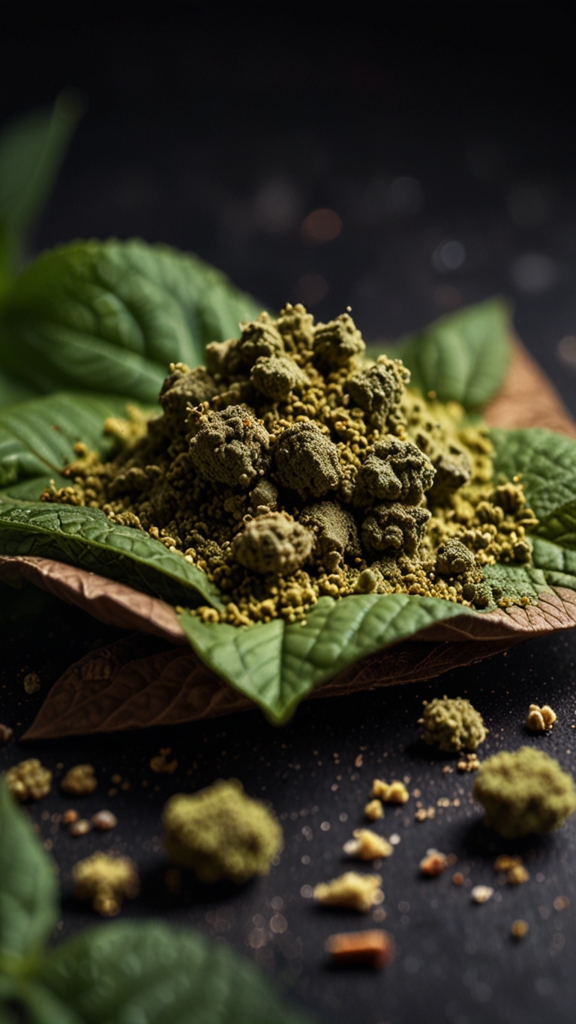Introduction
In recent years, kratom has gained significant attention, particularly in the United States and other Western countries. Derived from the leaves of the Mitragyna speciosa tree, native to Southeast Asia, kratom is touted for its diverse effects ranging from pain relief to increased energy and mood enhancement. But what has led to this surge in popularity? This article explores the factors contributing to kratom’s rise and the implications of its widespread use.
The Allure of Kratom
- Natural Pain Relief:
One of the primary reasons for kratom’s popularity is its reputation as a natural alternative to traditional pain medications. Many individuals seeking relief from chronic pain, arthritis, and other conditions have turned to kratom, claiming it provides effective relief without the side effects commonly associated with pharmaceutical drugs. The alkaloids in kratom, particularly mitragynine and 7-hydroxymitragynine, interact with the body’s opioid receptors, which can lead to significant pain relief. - Energy and Focus Booster:
At lower doses, kratom is often used for its stimulating effects. Many users report enhanced energy levels and improved focus, making it an appealing option for those looking to increase productivity or combat fatigue. This dual effect—both stimulating and sedative, depending on the dose—has made kratom a versatile choice for various individuals, from students to manual laborers. - Coping with Stress and Anxiety:
In an era where mental health awareness is at the forefront, many people are seeking natural alternatives for managing anxiety and depression. Kratom is reported to have mood-enhancing properties, with users claiming it helps alleviate symptoms of anxiety and improve overall well-being. As society increasingly shifts toward holistic approaches to health, kratom’s potential benefits appeal to those looking for non-pharmaceutical solutions. - A Solution for Opioid Withdrawal:
As the opioid crisis continues to devastate communities, many individuals struggling with addiction are searching for alternative methods to manage withdrawal symptoms. Some have turned to kratom, claiming it helps ease the discomfort associated with opioid withdrawal. While there is limited scientific evidence to support this claim, anecdotal reports have contributed to kratom’s growing popularity among those seeking recovery options.
The Role of Online Communities
The rise of social media and online forums has played a pivotal role in kratom’s popularity. Dedicated communities on platforms like Reddit, Facebook, and various health forums have created spaces for users to share their experiences, tips, and personal stories. These online platforms allow users to connect, providing a sense of belonging and support. This sense of community fosters trust in kratom and encourages others to try it.
Challenges and Controversies
Despite its popularity, kratom has faced scrutiny and criticism. Some of the primary concerns include:
- Safety and Side Effects: While many users report positive experiences, kratom can also cause adverse effects, including nausea, dizziness, and constipation. Concerns over dependency and withdrawal symptoms have led to discussions about the long-term safety of kratom use.
- Regulatory Issues: The legality of kratom varies significantly worldwide. In some countries, it is classified as a controlled substance, while in others, it remains legal. In the United States, various states have considered banning or regulating kratom, leading to uncertainty about its future availability.
- Lack of Scientific Research: Although many users advocate for kratom’s benefits, the scientific community has not extensively studied its long-term effects. This lack of research makes it challenging for healthcare professionals to provide guidance on its use.
Conclusion
Kratom’s rising popularity can be attributed to its perceived benefits as a natural alternative for pain relief, energy enhancement, and mental well-being. However, as the conversation surrounding kratom continues, it is crucial for users to remain informed about potential risks and to approach its use with caution.
As awareness grows and more research emerges, the future of kratom may change, impacting its status in the wellness community. Whether it becomes a widely accepted natural remedy or faces increased scrutiny will depend on the balance of personal testimonies, scientific research, and regulatory actions in the coming years. As always, individuals should consult healthcare professionals before incorporating any new supplement into their routine.

